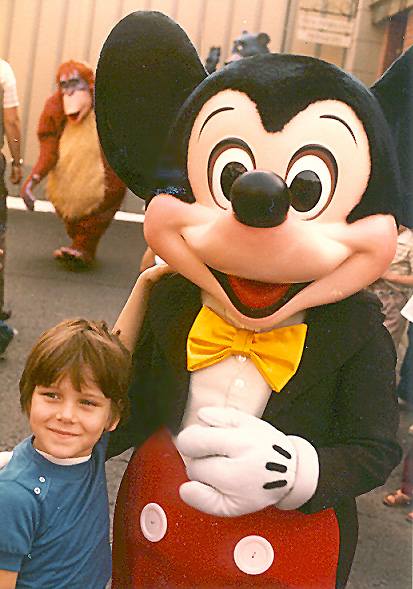In May 1981, a few months into the Reagan administration, my father and my brother Colin and in fact every member in my family started fighting. They weren’t fighting about Reagan, per se, but they wanted to give me a solid foundation for long-term neruosis. I never blamed anyone for the fight, but years later, after making a mint off of my novel, The Peregrinations, I felt stifled by the smell of cash around me. I had been approached by several financial advisors who suggested long-term savings and IRAs. They wanted me to live and travel and roll around like a self-entitled pygmy while my fellow writers starved. Had I been rude to Oprah? Had I forgotten the little people?
In considering my sordid sobbing history, I remember that it was Colin who first suggested that a real man took control of his life and that obtaining this confidence was easier when one was well grounded. Every time I tried to be myself, I was faced with Colin’s menacing shadow. Colin made less money in his life than I had in a single year, and yet he was secure, happily married, and encouraged me to roll into a fetal position at family reunions.
I think back to those halcyon days of 1981, because, despite my upper middle-class upbringing and a stable, albeit occasionally combative family, I was frightened every time I had to make a decision. I didn’t learn to tie my shoe until the age of 26 and it took a Iris Murdoch type who knew what she wanted to deflower me in grad school. She must have anticipated my hunky looking author photo — the bane of my existence since my success. She never revealed her name.
But there was some comfort growing up — no thanks to Colin, thank you very much. On my night table was the Marmaduke Omnibus, a dogeared (if you’ll pardon the pun), decaying paperback that I had found one day in the dumpster. I opened its pages and discovered that someone had written “This shit isn’t funny” on the inside front cover. This austere warning didn’t faze me one bit. Indeed, there was a sense of comfort in seeing Marmaduke’s innocuous disruption of the household. Like me, Marmaduke didn’t know any better. My heart quivered over Marmaduke’s long ears, and I soon developed an intimate relationship with Brad Anderson’s creation that posed certain problems during adolescence. Marmaduke, as you might imagine, was the only dog that counted. It took several Siamese cats, four parakeets and a few goldfish before I could allow another dog to roam in my own home.
Thankfully, my therapist understood this. After the unfortunate sprinting incident at a cocktail party, I was given a ritalin prescription. This, I might add, at 36.
Throughout the years, Colin suggested Bloom County, The Far Side or “hell, even Doonsebury.” But my mind was made up. Even Boondocks was too much for my refined sensibilities. It was Marmaduke or nothing. Other people I met had bad heroin habits. For my own part, I had a sociopathic obsession with a comic strip that wasn’t particularly funny.

 Magic Space Mountain: An exciting new ride that takes seven years to complete! Riders will be pummeled with ideas and then treated at a hospital, where they will rhapsodize with Mickey Mouse and philosophers.
Magic Space Mountain: An exciting new ride that takes seven years to complete! Riders will be pummeled with ideas and then treated at a hospital, where they will rhapsodize with Mickey Mouse and philosophers.